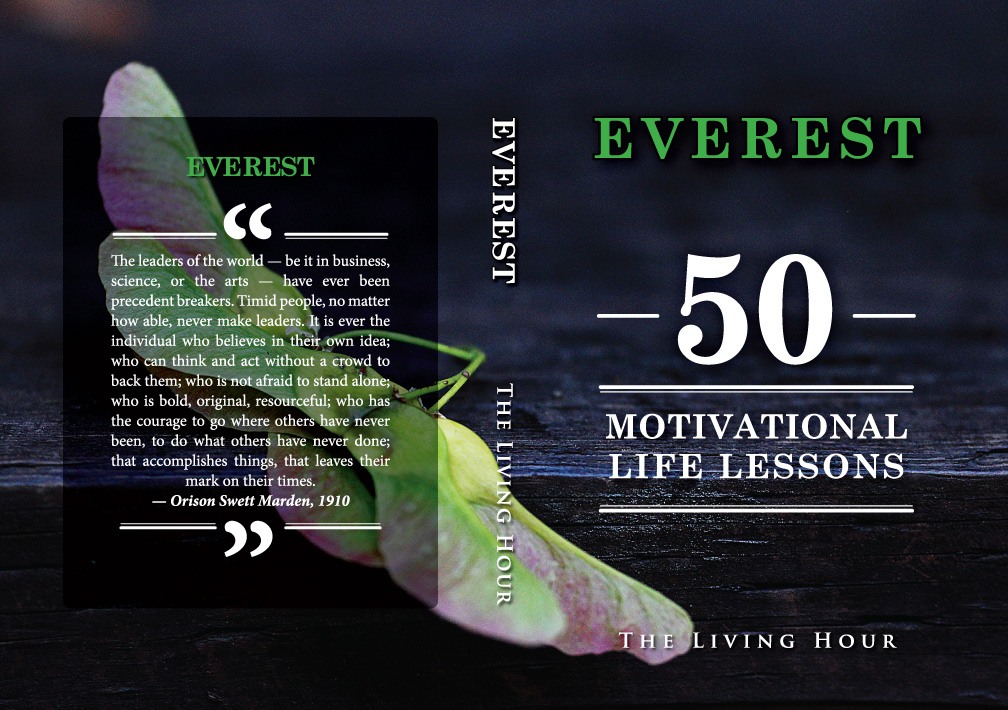04 Aug How to Take Control of Your Life & Opportunities
Podcast Transcript: Welcome to the Inspirational Living podcast. I’d like to start today by thanking our new patrons, including: Natosha Ford, Rebecca Cohen, Brad Joniec, Lou Page, and Philip Ellis. Coming up this weekend on Our Sunday talks, an exclusive series for our patrons, we will be discussing Love Letters from God. To become a patron and gain access to our provocative series on spirituality and spiritual growth, please visit LivingHour.org/Sunday.
Now, on to today’s reading, which was edited and adapted from from Beginning Right (How to Succeed) by Nathanial C. Fowler, published in 1916.
Success can’t be analyzed in a laboratory, but it is definable — for success is simply the result of doing your best. More than your best is impossible. Less than your best is inexcusable. No one in heaven nor earth asks you, nor expects you, to travel beyond the road of your capacity. But your life will not be pleasing to anyone, if the result of your endeavor represents less than the exercise of the fullness of your ability.
The world called you. You had no choice. You had to obey the summons of Nature. Why, you do not know, nor does anybody else know. Will you sink, float, or swim? Will you sit, walk, or run? While you are not responsible for your birth, you are responsible for your life.
No matter what your station, or how great or how little may be your natural ability, you (more than anyone else) are in command of yourself; and, while you may not be able to scale the mountain before you, you can (unless you are crippled) establish yourself upon a foothill of success. If this hill represents the highest eminence possible for you to attain, then, when you stand upon it, you have reached the pinnacle of attainment for you.
The monument of success is but a collection of little successes, a gathering together of small things well done. If you stand in the majesty, and dignity, and glory of your personality, with your feet planted upon the material earth and your eyes looking into the sky of opportunity, fail not to realize that (so long as the sun shines or the rain descends, so long as there is day or night) you, not others, are in command of your wonderful majesty.
Is there, or can there be, a road which will carry its followers to success and will protect them against disaster? I think not; and, if there were, half of those traveling it would not know enough to follow it. Neither I nor anybody else can tabulate the real causes which lead to failure, or present any rule which, if followed, will carry one to success.
At the same time, there are certain fundamental principles which successful people follow and which failures ignore. I asked a number of people of marked success (who collectively represent the leading businesses, trades, and professions) to answer this question: “What one cause, more than any other, do you think is responsible for the majority of failures?”
One hundred and eighty-seven replies were received. The answers were too scattered to establish a law of failure-making. Still, a recapitulation of the result should be of practical use to those who would succeed and avoid failure.
Thirty-six of the people gave lack of judgment as the principal cause of failure; thirty-three named extravagance; twenty-seven, laziness; twenty-three, lack of ability; eighteen, bad habits; eighteen, lack of perseverance; fourteen, lack of experience; fourteen, speculation; twelve, lack of energy; twelve, lack of integrity; eleven, carelessness; eleven, desire to make money rapidly; and ten, dishonesty. The others expressed opinions that were not as definite, yet they were similar in meaning.
To sum up, then, I think we can infer from these answers that the principal cause of success is an undying determination to win, backed by a constant willingness to do the hardest kind of work. And the cause of most failures (except where there is incompetency or lack of opportunity) is pure and simple laziness, which does not permit you to use your natural energy but tempts you to loaf and to float.
READ THE ENTIRE ESSAY IN EVEREST: 50 MOTIVATIONAL LIFE LESSONS

